| |
| |
| |
| Presented By American Hospital Association |
| |
| Axios Vitals |
| By Tina Reed · Apr 28, 2022 |
| Good morning, Vitals readers. Today's newsletter is 1,023 words or a 4-minute read. 👉 Check it out: NIAID director Anthony Fauci said this week the U.S. is out of the "pandemic phase." Axios' Erin Doherty went back and put together this timeline of Fauci's predictions. |
| |
| |
| 1 big thing: Hospitals press for more federal aid as fortunes turn |
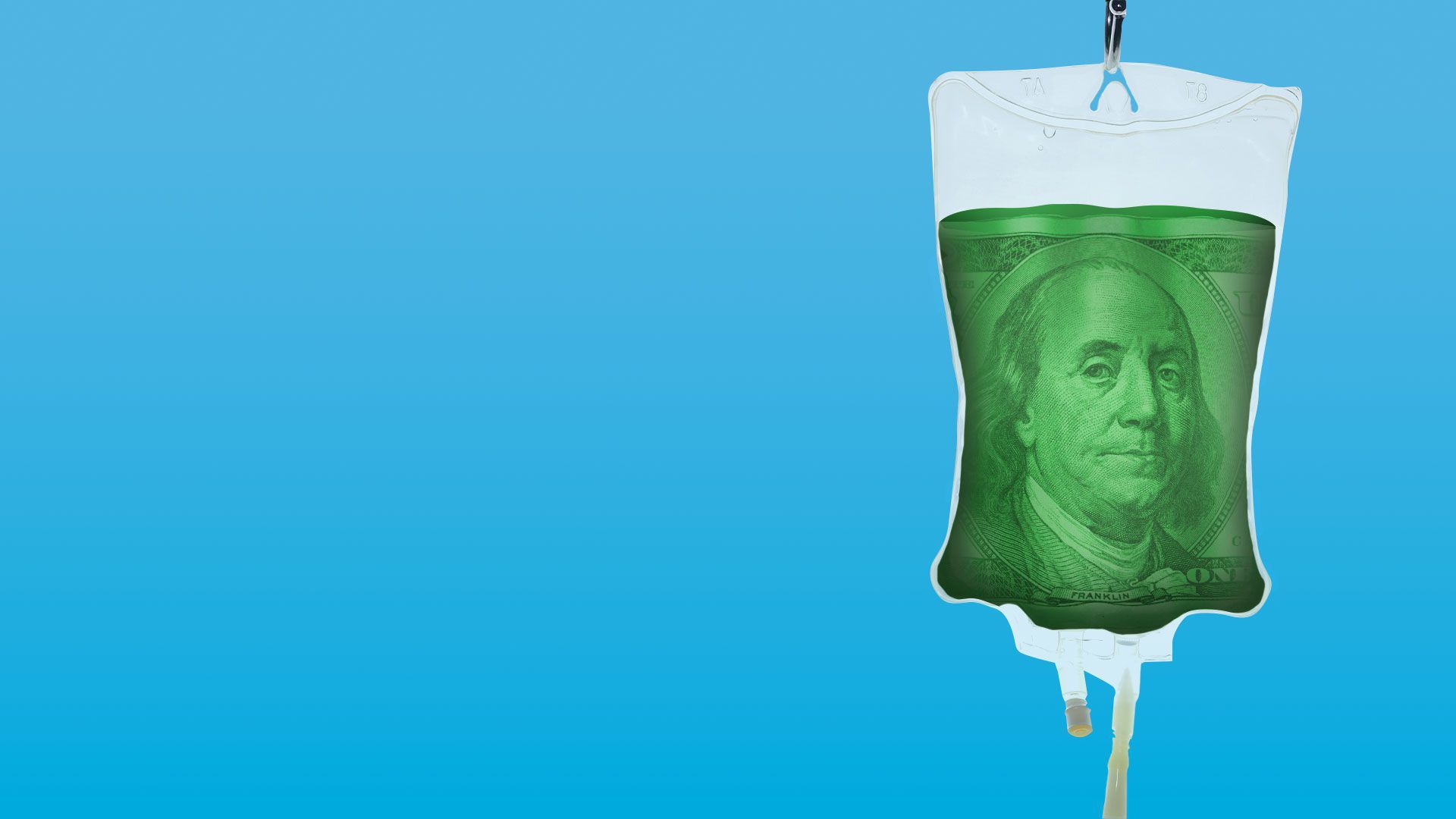 |
|
| Illustration: Aïda Amer/Axios |
| |
| Hospitals' financial fortunes have taken a turn for the worse in recent weeks, thanks to less-than-favorable Medicare policies and rising labor and supply costs, Axios' Adriel Bettelheim and Caitlin Owens write. Why it matters: Hospitals are by far the largest driver of U.S. health care spending, and critics have argued for years that Washington is reluctant to take on the powerful industry. - But the crunch that hospitals now face may have unintended effects on patient care and will be hard for rural and safety-net hospitals to weather.
Driving the news: Many hospitals are facing pandemic-fueled staffing shortages and surging labor costs as they turn to more contract staff and travel nurses. - The industry couldn't persuade Congress to pause a scheduled 2% cut in Medicare payments, then was frustrated by a Medicare payment proposal for 2023 that it says ignores the effects of inflation, labor and supply cost pressures.
- The American Hospital Association says more than 33% of facilities are operating on negative margins.
Between the lines: Sympathy may be limited for an industry that recently received large sums of federal dollars to weather the pandemic, especially amid headlines about higher-than-expected earnings for some health systems. - But the 2% cut in Medicare payments could result in a $228.5 million hit and the loss of 2,800 jobs at rural facilities, per the National Rural Health Association.
- "There is a convergence of multiple pressures points impacting the viability of rural community hospitals," said Carrie Cochran-McClain, the group's chief policy officer.
Go deeper. |
    |
| |
| |
| 2. Moderna seeks OK for little kids' vaccine |
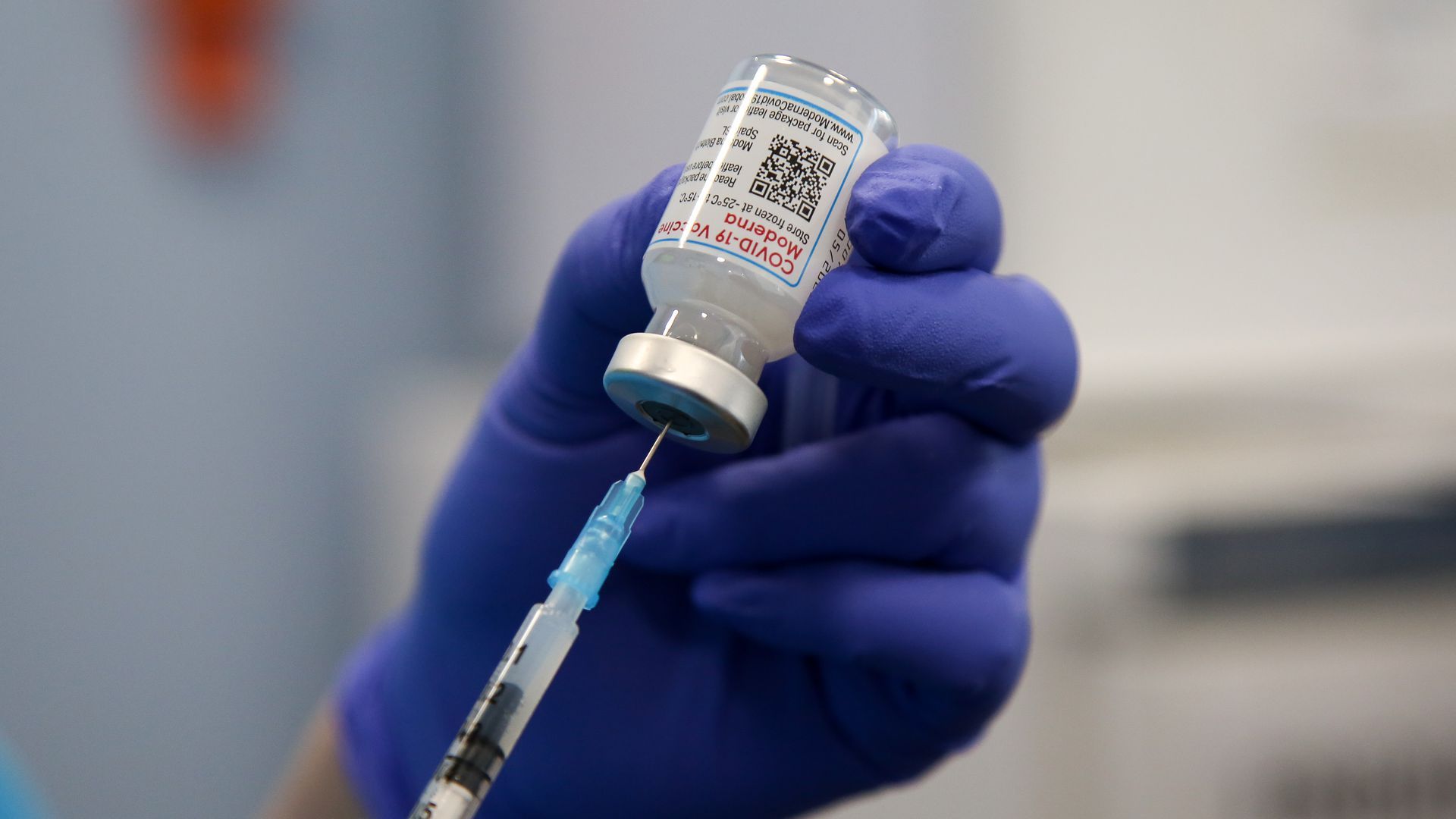 |
|
| A health worker draws the Moderna COVID-19 vaccine. Photo: Dinendra Haria/SOPA Images/LightRocket via Getty Images |
| |
| Moderna on Thursday submitted a request to the FDA for emergency use authorization for its COVID-19 vaccine in children 6 months to under 6 years of age, Axios' Erin Doherty writes. Why it matters: Young children have been largely unprotected throughout the pandemic. The FDA's approval would ultimately permit them to get a COVID-19 vaccine. The big picture: Moderna said last month its COVID-19 vaccine for children — which consists of two 25-microgram doses — generated a strong immune response in children ages 6 months to 5 years. - Efficacy was 43.7% for children ages 6 months to 2 years and 37.5% in children ages 2 to 6, clinical trial data showed.
- "The majority of cases were mild, and no severe COVID-19 disease was observed in either age group," the drugmaker said last month.
|
    |
| |
| |
| 3. COVID cases rising across bulk of U.S. |
 Data: N.Y. Times; Cartogram: Kavya Beheraj/Axios COVID cases are on the rise in all but six states and Washington, D.C., as the Omicron subvariant continues to spread across the U.S. The big picture: Case rates and hospitalizations are still well below pandemic highs, prompting Fauci to declare that the nation is out of a "full-blown explosive pandemic phase." By the numbers: There were roughly 51,000 new daily cases over the last week, up 51% from two weeks ago. - The highest reported case rates were in Vermont, where there were 45.5 new cases per 100,000 people.
- The lowest reported case rates were in Mississippi where there were 3 new cases of COVID per 100,000 people.
Between the lines: COVID deaths are still falling. There were 362 deaths a day on average, down 23% from an average of about 470 deaths a day two weeks ago. But the decline in deaths slowed a bit. Reality check: As we mentioned last week, the data regarding new cases are getting less reliable as the public testing infrastructure continues to wind down. - The World Health Organization warned the world is "increasingly blind" to COVID transmission, the Daily Mail reported.
Share this story. |
    |
| |
| |
| A message from American Hospital Association |
| Ensure access to care and support hospitals |
| |
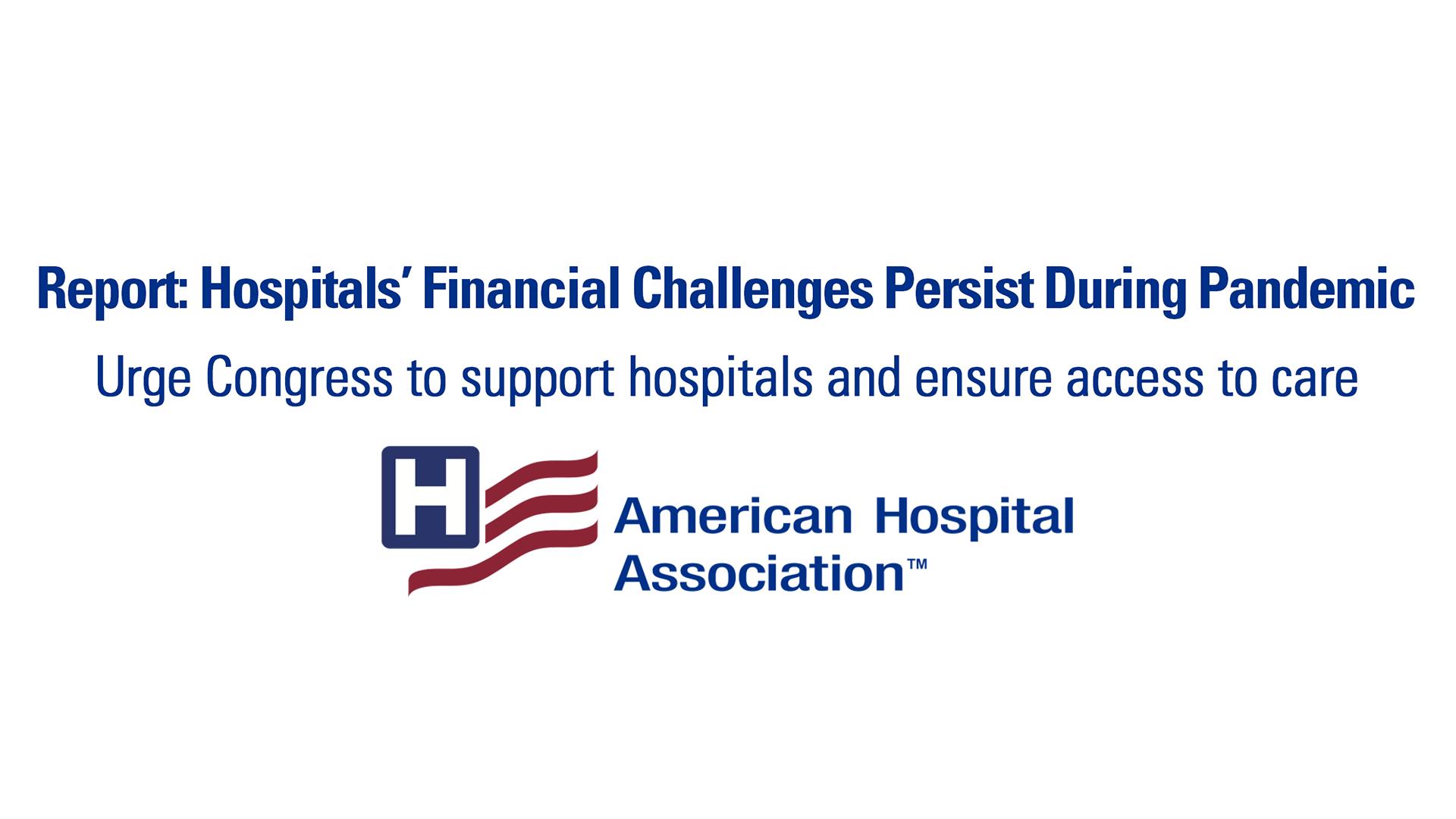 |
| |
| Hospitals and health systems continue to face enormous challenges from the pandemic. Why it's important: An exhausted workforce, higher input costs and reductions in Medicare payments threaten patients' access to care. They need help from Congress. Read the new report. |
| |
| |
| 4. Why the vice president is taking Paxlovid |
 |
|
| Photo: Kent Nishimura/Los Angeles Times via Getty Images |
| |
| After the White House announced Vice President Harris tested positive for COVID-19, her spokeswoman Kirsten Allen revealed Harris would be taking Pfizer's antiviral pill Paxlovid, Axios' Oriana Gonzalez writes. The big picture: Paxlovid is authorized to treat those who are at high risk of developing severe COVID. Harris is 57, and the CDC says that adults aged 50 and older are likelier to become severely ill with the virus. While Harris hasn't presented symptoms, she is modeling a practice many experts say more people need to take: After testing positive, she began the treatment before her disease progressed, Axios' Caitlin Owens writes. - Harris' office didn't respond to Axios' request for comment, but Allen said in her statement the vice president was prescribed Paxlovid after consulting with her physicians.
What we're watching: Now that there's plenty of doses available, health officials want doctors to be less hesitant to prescribe the pills. - "Any high risk person should have it. Timing really matters. The earlier the better. People should not wait until they develop symptoms to start taking it," Leana Wen, emergency physician and professor at George Washington University, told Axios.
Related: COVID symptoms may return for some after taking Paxlovid antiviral pills |
    |
| |
| |
| 5. What Musks' Twitter buy could mean for health info |
 |
|
| Illustration: Shoshana Gordon/Axios |
| |
| If Elon Musk follows through on his pledge to allow any speech on Twitter that doesn't break the law, it will open the door efforts to mislead voters and spread COVID misinformation, Axios' Ina Fried writes. Zoom in: Twitter has a policy against COVID-19 related misinformation. - Medical misinformation, though, is not generally illegal and limiting moderation to the terms of the law could open up a host of false claims on everything from cancer cures to the safety of childhood vaccines.
What they're saying: "[Musk] says it's your job to fact check what he's monetizing. Scientists will have to redirect their work to fact-check nonsense," said Imran Ahmed, CEO of the Center for Countering Digital Hate. - "There's no evidence to date there's a halo effect from COVID vaccine hesitancy to other vaccine hesitancy but we'll see whether that happens in the coming year or two," Ahmed said. "That's the real fear: that this exacerbates the very slow long moving trend that's seen a slow general decline in childhood vaccines."
|
    |
| |
| |
| 6. Catch up quick |
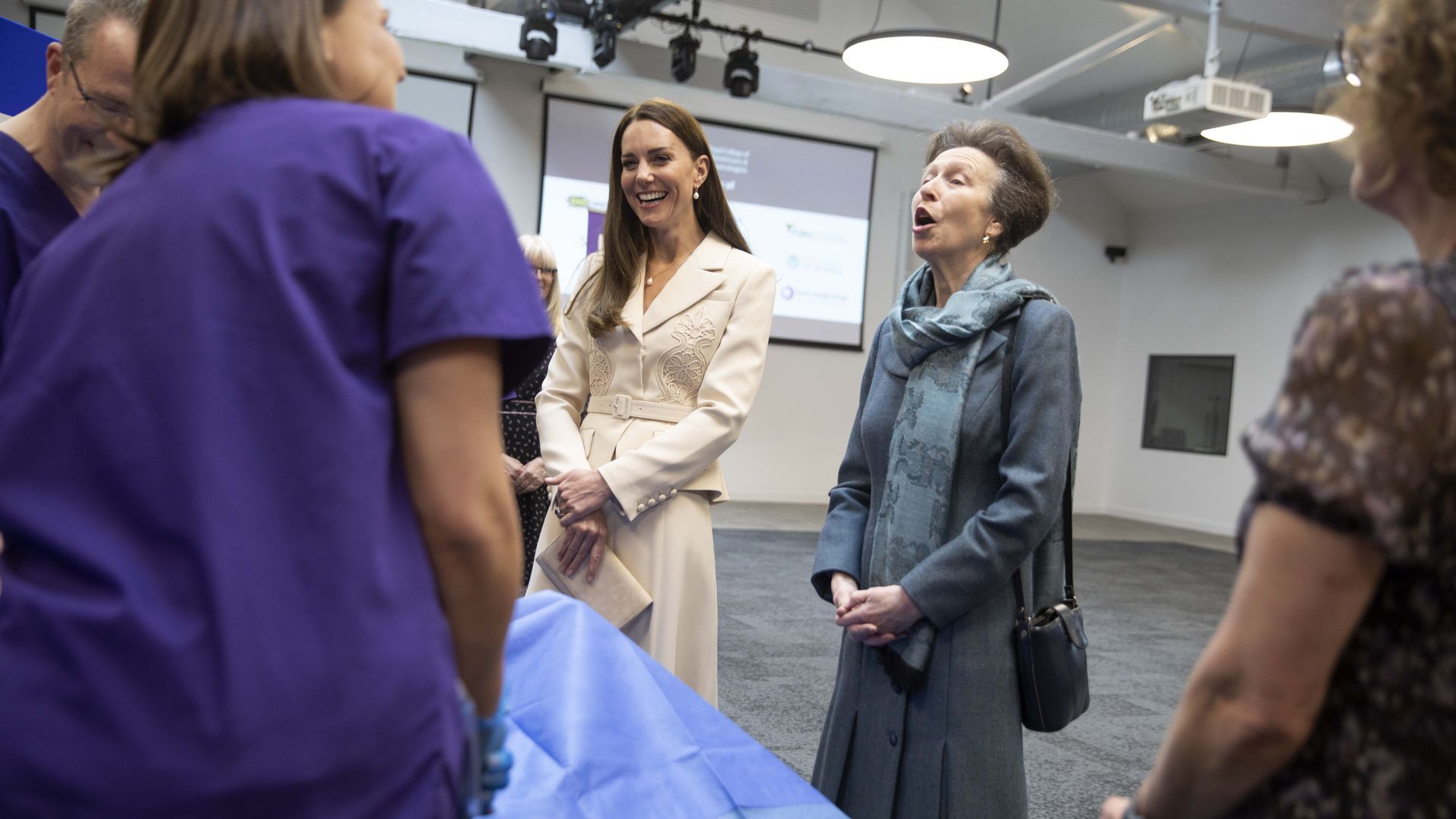 |
|
| Princess Anne and Kate Middleton visit the Royal College of Midwives and Royal College of Obstetricians and Gynaecologists headquarters Wednesday. Photo: Richard Pohle - WPA Pool/Getty Images |
| |
| 🩺 Measles cases jumped 79% globally in 2022 compared to the same period last year. WHO warned the world is "seeing a resurgence of deadly diseases including measles" due to disruptions to immunizations. 💊 Some of the nation's largest pharmacies have started blocking or delaying prescriptions from some doctors amid scrutiny over ADHD drug prescriptions from online startups. 🦵 In the latest Axios Finish Line newsletter, learn more about how squatting could help you live longer. Don't skip leg day, people. |
    |
| |
| |
| A message from American Hospital Association |
| Support hospitals, preserve care |
| |
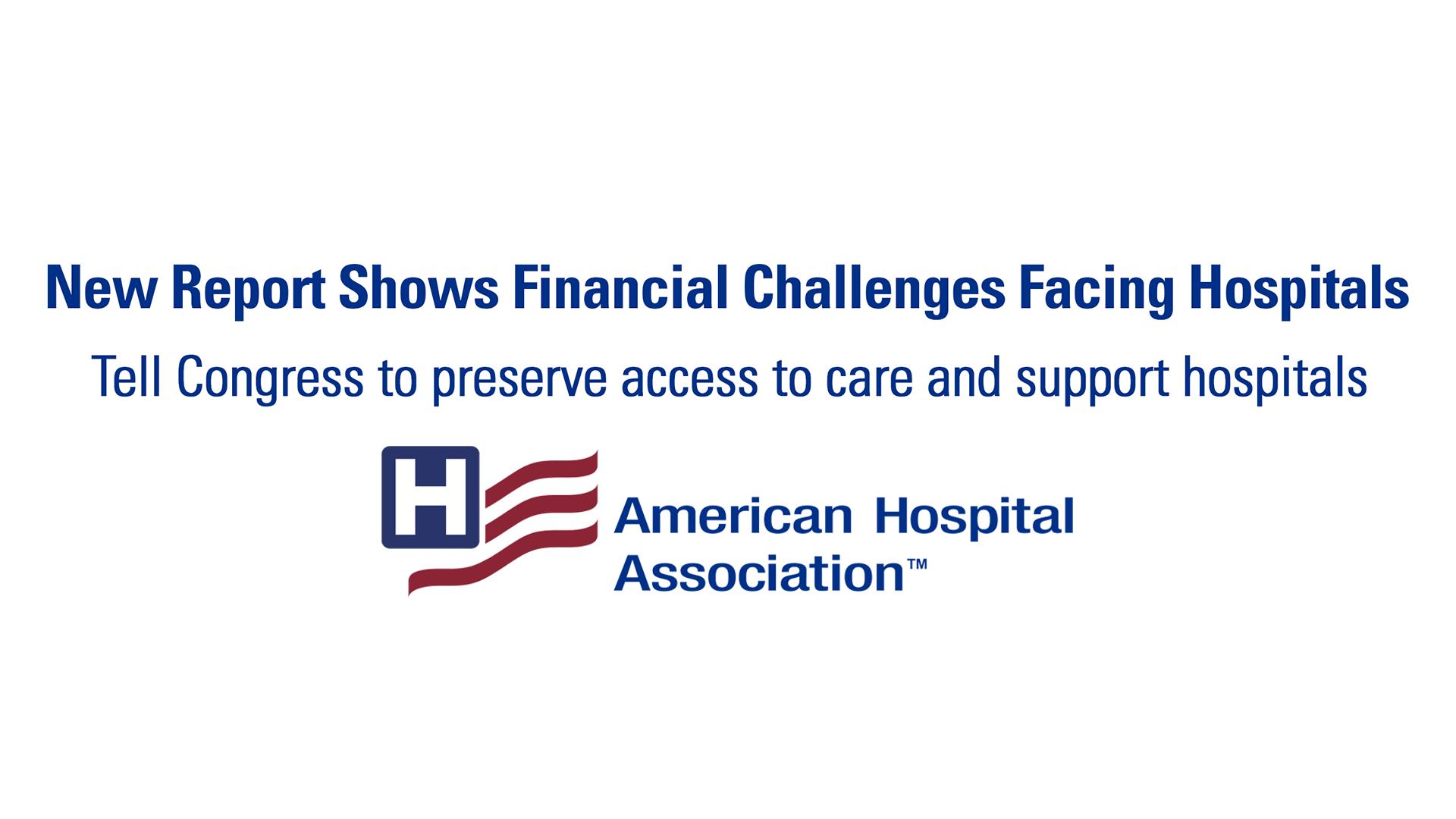 |
| |
| Skyrocketing inflation and the rising cost of drugs and supplies present enormous challenges for hospitals and health systems as they continue to battle the pandemic. They need help from Congress to continue providing access to care for patients and communities. Read the new report. |
| |
 | It's called Smart Brevity®. Over 200 orgs use it — in a tool called Axios HQ — to drive productivity with clearer workplace communications. | | |










No comments:
Post a Comment